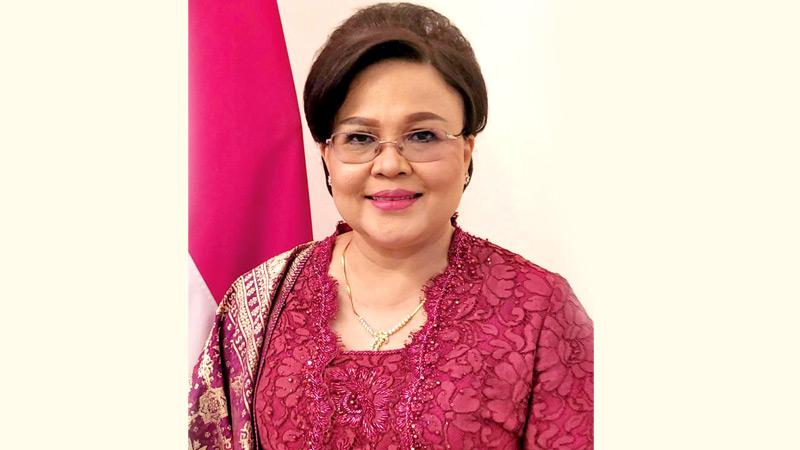
Negotiations on the Indonesia-Sri Lanka Preferential Trade Agreement (ISL-PTA) will begin soon as both countries see the enormous potential to boost bilateral trade, said Ambassador of the Republic of Indonesia, Dewi Gustina Tobing on the sidelines of a bilateral trade forum organised by the National Chamber of Commerce of Sri Lanka in Colombo last week.
Referring to a timeline Tobing said discussion on the PTA hopefully will start this year as both countries have shown great eagerness on the trade agreement.
“The PTA is vital for both countries to enhance cooperation especially in the economic sectors, including trade and industry,” the Ambassador said.
Trade between Sri Lanka and Indonesia has been in favour of Indonesia with the value of trade between both countries being around USD 473 million in 2021. Sri Lanka’s exports were around USD 53 million while imports from Indonesia were at USD 420 million. Indonesia was the ninth export destination of Sri Lanka in the same year with fabrics accounting for around 26.4 percent of the total exports to the East Asian nation.
Indonesia will explore future cooperation not only on trading but also partnerships and joint ventures by investing in Sri Lanka. Fertiliser is one major area that we could look at investing in Sri Lanka while enhancing collaborations in the industrial sector, the Ambassador said, adding that Indonesia as done in the past will continue to support Sri Lanka especially during the present tough times to overcome the economic crisis.
Ambassador Tobing at a meeting with former Premier Mahinda Rajapaksa conveyed Indonesia’s interest to share expertise to boost the Sri Lankan agriculture sector, especially vegetable oil plantations.
Indonesia provided USD 1.6 million worth pharmaceutical aid to Sri Lanka in March this year.
“We care about the people of Sri Lanka and will look at not only short but long term help for the country,” Ambassador Tobing said. The economy of Indonesia is the largest in Southeast Asia and is one of the emerging market economies.
As a middle income country and member of the G20, Indonesia is classified as a newly industrialised country.
It is the 17th largest economy in the world by nominal GDP and the 7th largest in terms of GDP (PPP). Estimated at US$40 billion in 2019, Indonesia’s Internet economy is expected to cross the US$150 billion mark by 2025. Indonesia depends on domestic market and government budget spending and its ownership of state-owned enterprises (the central government owns 141 enterprises). The administration of prices of a range of basic goods (including rice and electricity) also plays a significant role in Indonesia’s market economy.
In the aftermath of the 1997 Asian financial crisis, the government took custody of a significant portion of private sector assets through the acquisition of non performing bank loans and corporate assets through the debt restructuring process and the companies in custody were sold for privatisation several years later. Since 1999, the economy has recovered. Growth has accelerated to over 4–6% in recent years.
In 2012, Indonesia replaced India as the second-fastest-growing G-20 economy, behind China. Since then, the annual growth rate has fluctuated around 5%.
However, Indonesia faced a recession in 2020, when the economic growth collapsed to −2.07% due to the Covid-19 pandemic. This was the worst growth since the 1997 crisis.
In 2021, gross domestic product expanded 3.69%, due to the removal of COVID-19 restrictions as well as record-high exports driven by stronger commodity prices.
Indonesia is predicted to be the fourth largest economy in the world by 2045.
Joko Widodo has stated that his cabinet’s calculations showed that by 2045, Indonesia will have a population of 309 million people. By Widodo’s estimate, there would be economic growth of 5−6% and GDP US$9.1 trillion. Indonesia’s income per capita is expected to reach US$29,000.
